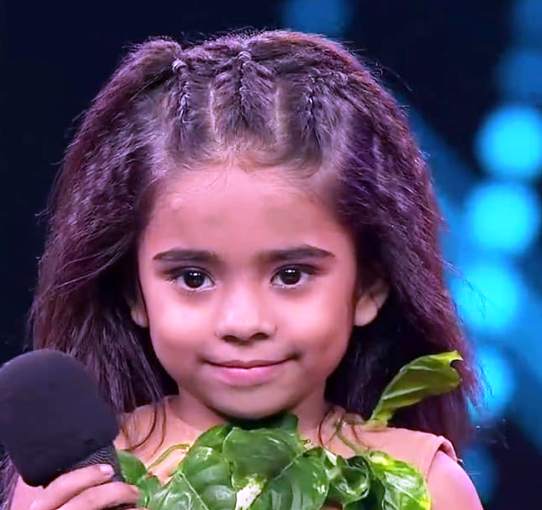BY RADHIKA BHIRANI
New Delhi–All of 6, Rupsa Batabyal was the star of “Super Dancer Chapter 3”, where her belly dancing and ‘latka jhatkas’ won the hearts of the celebrity judges who dubbed her an “angel of dance”. She is just one of the many children who end up imitating bold and suggestive moves and expressions in the pursuit to climb up the ladder of success in the world of dance reality television shows.
The Ministry of Information and Broadcasting, in an advisory, noted how several dance based reality TV shows portray young children performing dance moves originally done by adults in movies and other popular modes of entertainment.
In the advisory to private television channels, the ministry said: “These moves are often suggestive and age-inappropriate. Such acts may also have distressing impact on children, impacting them at a young and impressionable age.”
According to filmmaker Onir, this directive was long overdue.
“I am glad that this was issued. In a country where child sexual abuse is rampant, encouraging children to perform moves that are essentially sexual, is worrying. The channels should have on their own never allowed this to happen,” he tweeted.
Ashoke Pandit, who is associated with the Federation of Western India Cine Employees (FWICE), said: “Kids should be allowed to bloom like a flower as per their age. These dance shows snatch away their innocence from them. They should not grow bigger than their age. Instead of being regulated, we should ourselves in the industry take a conscious call.”
Vivek Agnihotri commented: “Almost all channels have kids dance/singing reality shows fully dependent on Bollywood songs. Not even one show which sharpens a child’s intelligence and creativity.” and left it by raising a question: “Who is responsible for this? Makers? Parents? Government? Society? Regulators? Channels? Human greed?”
Choreographer Ashley Lobo, who had judged “India’s Dance Superstar”, believes it has to be a collective effort to ensure choreography for children is age appropriate.
“Right at the conception stage, we must be careful of what songs, outfits, steps, make-up and look is being planned for the performance. At Danceworx, we are very particular about age-appropriate content and choreography for children. What they see is what they learn and we have to create responsible, conscientious adults,” Lobo told IANS.
The “what they see is what they learn” concept is also something pointed out by Abhay Singh, father of young and talented dancer Akshat Singh, who was recently seen on international show “Britain’s Got Talent”.
“One has to understand that the kids are at the bottom of the chain. They see what is happening at the top of the chain and follow that. They watch the Bollywood songs and whatever is happening in the movie industry and it impacts them. Kids cannot really do anything about it. Parents should know what their child should or should not do,” Abhay told IANS.
It has also been welcomed by the industry.
“The I&B Ministry advisory is an excellent one and we are happy to adhere to its guidelines,” said ZEE TV Business Head Aparna Bhosle, while a Sony Entertainment Television statement read: “With regard to the advisory issued by the I&B Ministry, as a responsible broadcaster, we comply with the guidelines of the National Commission for the Protection of Child Rights (NCPCR) and the advisory of the Broadcasting Content Complaints Council (BCCC) on the participation of children on television shows.
“All parties involved in the production of our shows have been made aware of the importance of compliance with the guidelines and adhere to the same diligently.”
Plain logic says children’s reality shows must maintain a certain hygiene, says Samir Parikh, Director, Department of Behavioural Sciences and Mental Health, Fortis Healthcare.
“Firstly, kids in talent shows must enjoy the fun element. Winning and losing must become secondary to joy of participation. Secondly, the pressure needs to be removed. For this, parents must encourage them to look at their participation as honing a skill, otherwise the kids will struggle too much.
“Thirdly, one does feel the innocence is being replaced by very adult-like behaviour with lyrics, gestures, nature of movements… This advisory is a good thought to make people introspect, be aware and be thoughtful about how it would have an impact on six to seven year old children who pick a lot from observational learning.” (IANS)













